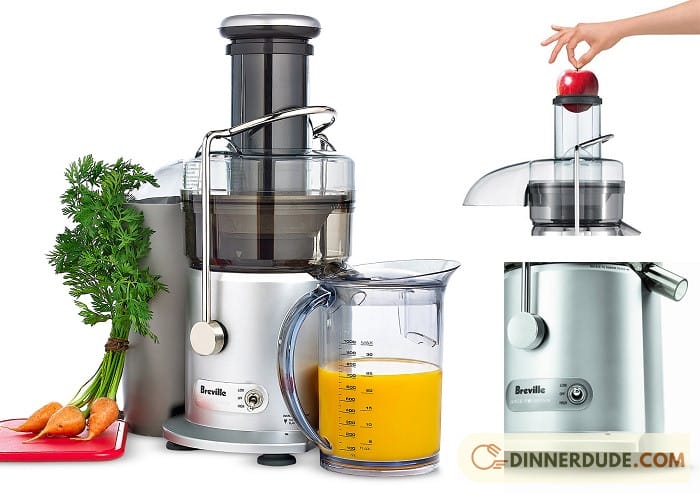Juicers have become a staple in many kitchens, offering a convenient way to extract fresh and nutrient-packed juices from fruits and vegetables. One common question that often arises is whether juicers effectively remove pulp from the juice.
So, Do juicers remove pulp? Demystifying the Juicing Process. In this exploration, Dinnerdude will delve into the intricacies of juicing, dissecting the different types of juicers and their impact on pulp extraction.
Centrifugal Juicers

Centrifugal juicers are a popular choice for those seeking quick and efficient juicing. These machines utilize high-speed spinning blades to shred fruits and vegetables, separating the juice from the pulp.
With their rapid processing, centrifugal juicers tend to yield a juice that is smoother with less noticeable pulp. However, the trade-off for speed is that some fine pulp particles may still make their way into the juice.
Tips for Pulp Reduction with Centrifugal Juicers
When using a centrifugal juicer, there are strategies to minimize the presence of pulp in your juice.
Firstly, consider running the extracted juice through a fine mesh strainer or cheesecloth to catch any remaining pulp particles.
Additionally, adjusting the speed settings on your juicer can impact pulp levels – lower speeds often result in more pulp, while higher speeds reduce it.
Experimenting with different fruits and vegetables can also reveal which produce yields less pulp in the juicing process.
Enhancing Juicer Efficiency
Optimizing your centrifugal juicer’s efficiency involves proper maintenance. Regularly cleaning and unclogging the juicer components ensures smoother operation, reducing the likelihood of pulp escaping into the juice.
Choosing ripe and firm produce also aids in maximizing the juicer’s efficiency, providing a cleaner extraction process.
Masticating Juicers

Masticating juicers, also known as slow or cold-press juicers, operate at lower speeds and utilize a chewing or grinding mechanism to extract juice. These juicers are revered for their ability to preserve more nutrients and, importantly, retain a higher amount of pulp in the juice. The slower extraction process allows for a thorough breakdown of fruits and vegetables, resulting in a juice that is richer in fiber and texture.
Embracing Pulp with Masticating Juicers
For those who appreciate the nutritional benefits and added texture of pulp, masticating juicers offer an ideal solution. These juicers are designed to extract juice while keeping more of the natural fiber intact. To enhance the pulp content further, consider experimenting with different produce and adjusting the juicer’s settings to tailor the pulp level according to your preference.
Cleaning and Maintaining Your Masticating Juicer
Maintaining a masticating juicer involves thorough cleaning to ensure optimal performance. Disassembling the components and cleaning each part meticulously prevents the accumulation of pulp residues, guaranteeing a consistent and pulp-rich juice with every use. Regular maintenance not only enhances the juicer’s longevity but also contributes to a more satisfying juicing experience.
Do juicers remove pulp?
In the debate over whether juicers remove pulp, the answer lies in the type of juicer used and individual preferences. Centrifugal juicers offer a faster and smoother juice with less noticeable pulp, while masticating juicers preserve more pulp, providing a texturally-rich and nutritionally-dense beverage.
Tailoring your juicing experience involves understanding the capabilities of your juicer, experimenting with different settings, and embracing the versatility of fruits and vegetables to achieve the desired pulp level in your refreshing concoctions.
